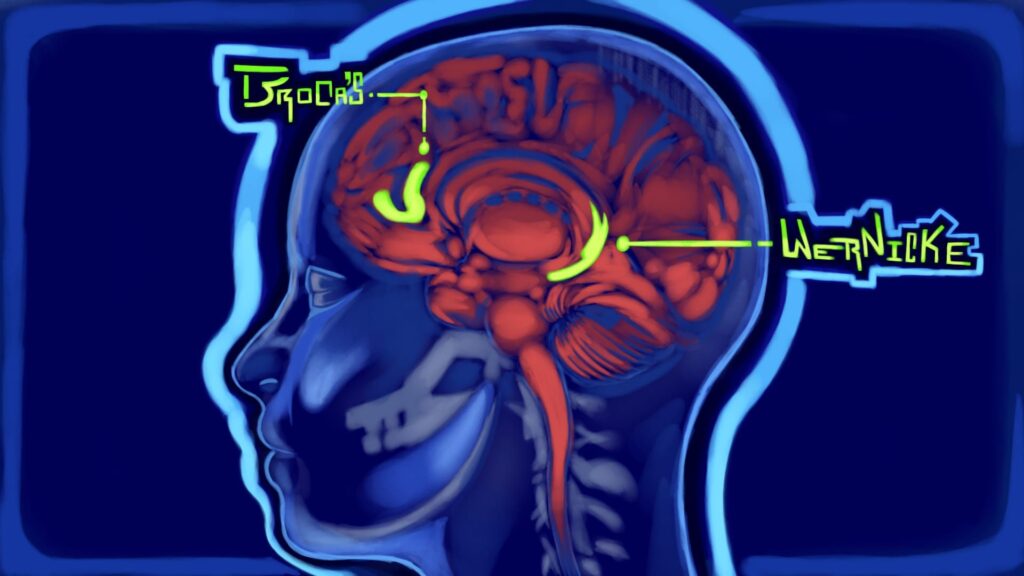Breaking Down The Role Of Language In Society
If Charles Darwin was right when he said humans descended from a common ancestor, why can we communicate complex thoughts and emotions through words, but other species can’t?
Linguistics professor Noam Chomsky proposed that people are born with the ability to learn language.
According to the Wernicke-Geschwind Model for language processing, when we listen to someone speak, our brains convert sound waves into electrical signals that are sent to the primary auditory cortex.
These signals are processed by Wernicke’s area—the part of the brain that’s responsible for understanding words—to generate a reply.
That response is then sent to Broca’s area—the part of the brain that’s responsible for speech production—and later to the primary motor cortex, which controls the muscles needed to communicate.
The most effective way to learn a new language is by immersing yourself in an environment where it’s spoken.
Factors such as motivation, environment, cognitive abilities, emotional agility, learning style, commitment and previous experience also affect language acquisition.
However, as Italian linguist Mario Pei explains, language only gains purpose when shared within the society and when people collectively choose to accept it.
According to social psychologist Howard Giles’ Communication Accommodation Theory, people can modify their communication style to fit different social contexts.
This quality is very important in multilingual or multicultural societies, such as in Miami. In these environments, people might switch languages or dialects multiple times a day, navigating between identities and relationships.
Language is essential to culture. As novelist Khaled Hosseini said: “If culture was a house, then language was the key to the front door, to all the rooms inside.”
Critics of bilingualism argue that switching between languages can lead to communication delays or a weaker vocabulary.
However, speaking a second language allows humans to connect with others and offers cognitive benefits—including delaying age-related conditions, such as dementia, and enhancing skills, like attention, memory retention and problem-solving
Most languages across the world share common characteristics, such as verb tenses, question formation and plural/singular or male/female distinctions.
These features allow us to talk about things that are right in front of us or far away, things that have existed, things that never happened or things that could occur.
There is an inseparable connection between language and thought. We can’t think about anything without using language—whether in our internal dialogues or when communicating with another person.
Language gives people the tools to communicate, release emotions, build relationships, create art, share knowledge, engage in culture and express their identity.

